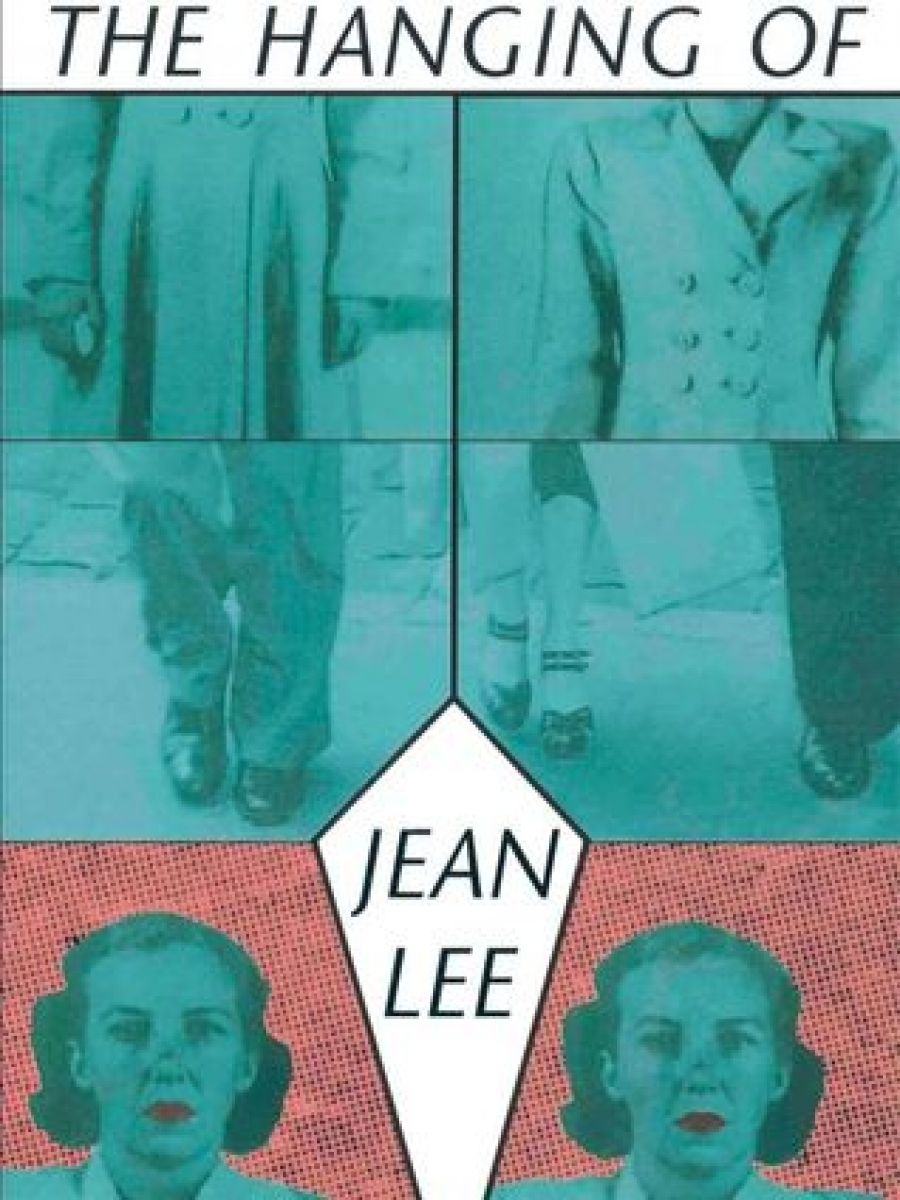
- Free Article: No
- Contents Category: Verse Novel
- Review Article: Yes
- Online Only: No
- Custom Highlight Text:
The Hanging of Jean Lee is the third verse novel I have reviewed recently, except that this one is closer to the verse documentary.
- Book 1 Title: The Hanging of Jean Lee
- Book 1 Biblio: Black Pepper, $19.95 pb, 75 pp
Jean Lee was born in Dubbo in 1919, the daughter of a railway man. Later the family shifted to Chatswood, ‘a normal family in a normal house in a normal suburb on Sydney’s north shore’. Yet it took Jean only fifteen years to reach the gallows, the last woman to be hanged in Pentridge jail. An attractive, lively redhead, she attended a Catholic school, passed her intermediate, and began moving from factory job to factory job, all well below her intelligence level. She married at eighteen but it ended only a year later, leaving her with a baby daughter and ‘a trail of rent bills from Redfern to Glebe’.
What a waste of a wedding!
What a fool of a bloke!
With the outbreak of World War II, she becomes ‘a soldier’s girl’:
Call me yank lover
cunt to my face.
It doesn’t take her long to graduate into prostitution.
This is work and as far as I can see
You wanna touch? You wanna feel?
You wanna pay the lonely man’s fee.
Her lover and pimp is Robert Clayton, a well-known petty crim, embezzler, housebreaker, and drunk roller. She calls him ‘her Bobbie’. In the underworld of Sydney, Perth, and eventually Melbourne, she is known as Skinny Jean. Together they work the streets, cheap rooms, and pubs, Jean as decoy, Bobbie as standover man and blackmailer.
He calls us Bonnie and Clyde.
He thinks we have their kind of style.
Their criminal career ends with a brutal murder. With the help of an accomplice, they torture and strangle an elderly Carlton bookmaker during race week in Melbourne. The victim is left with his nasal bones fractured, a tennis ball cheek, a dinner plate thigh, cigarette burns, a broken bottle slashed in his face, dents to his head, and his larynx garrotted by hand.
How then to transform Jean Lee, this sleazy cold-hearted whore, into a figure fit for human sympathy? Albiston uses Lee’s days in solitary confinement waiting for death as vehicle for a series of passionate interior monologues of considerable strength and energy. With Jean Lee alone in the condemned cell, God doesn’t answered but some tatty angels do rustle in.
Hark
the Herald angels sing Jean Lee
is going to die They lick their
tacky tabloid wings
It isn’t so long ago, 1951, since Jean Lee was hanged. We are left with a horror for the whole brutal proceedings of capital punishment and grief for the wasted life of a beautiful young woman. Quite an achievement.
Fly Away Jean
A flurry of feathers and she’s off leaving
the chair and the rope and the press and the
bleeding hearts lined up outside Ding
dong she’s flown the coop and the crowd
has heard the clang They raise their faces
to the sky while all over Melbourne the
morning stars and mothers call children to
their sides to cover their innocent eyes
She is dead she is dead says Peter to Robin
She is dead she is dead says Robin to Bobbin
She is dead she is dead says John all alone
She is dead she is dead says everyone
Why is it then that I am left so dissatisfied with the verse novel in general and why this fascination with a particular genre, apparently growing in popularity? Is it an attempt to bridge the gap between prose and poetry, to create a new popular audience? Maybe it works well for those who are willing to accept poetry only as an offshoot to narrative, but inevitably it seems to me that this strong narrative drive must eventually dictate the style. The result is a tendency towards a flattening of diction, a uniformity of tone, that it seems difficult in the long run to transcend (unless by the considerable skill of a Les Murray).
I don’t want a poetry that is made easy. I long for the magical flash of insight, the rhythmic stanzas that sing, the intellectual fascination of decoding what is difficult. In other words the whole lyrical transcendental impulse of poetry.


Comments powered by CComment